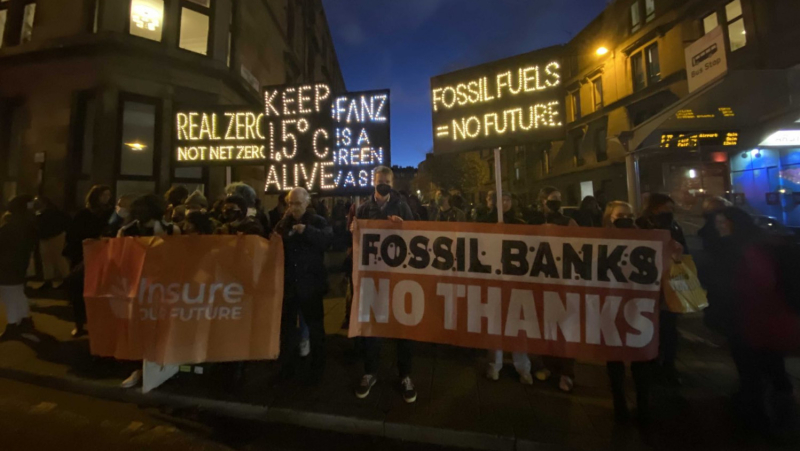‘Net Zero banks’ turn their back on crucial 1.5ºC climate target

The 129 Net-Zero Banking Alliance (NZBA) member banks have today voted to loosen requirements, including the obligation to align their portfolios with the central Paris climate goal of limiting global temperature rise to a maximum 1.5 degrees by the end of the century. Instead, they seek the initiative to “deepen client relationships and address constraints on green growth by working with their clients to advance policies that stimulate markets and unlock opportunities for investment”.
It was the exodus of US, Canadian, Japanese and Australian banks since December 2024 that forced the NZBA to fundamentally rethink its mission. It faced a stark choice. Either it was going to take advantage of the withdrawal of some of the biggest fossil fuel financiers to demonstrate real climate leadership, by demanding full consistency between its members’ commitments and their actions, including on their ongoing financing of the fossil fuel industry. Or it was going to try to keep all remaining members within the alliance by drastically watering down its ambition levels. Unfortunately for the planet, today, members voted for the second option.
While NZBA’s previous guidelines explicitly stated that member bank targets “shall at a minimum align with a goal to limit global warming to 1.5ºC above the preindustrial average by the end of the century”, the new guidance published today severely backtracks on that central commitment by referring to the goals of the Paris Agreement to limit global warming as “well below 2ºC, striving for 1.5ºC”. The disastrous impacts of a 2ºC warming compared to 1.5ºC as already exposed in the 2018 IPCC 1.5ºC report should have been sufficient reason for member banks to stick to the 1.5ºC goal.
Abandoning the 1.5ºC climate target is not the only change to the NZBA framework. While the previous “guidelines” included a mandatory process of target setting on a comply-or-explain basis, the new “guidance” only provides recommendations to member banks. It is also no longer required to include capital market activities in targets from November 2025 onwards, which was the main improvement of last year's update.
Right from the launch of the NZBA in April 2021, civil society has pointed out the fundamental shortcomings of the alliance, including the absence of any obligation to tackle fossil fuel financing – the main driver of the climate crisis. Today’s decision of the NZBA to no longer commit to the central 1.5ºC Paris climate goal confirms what many stakeholders have always thought of the initiative, namely that it served primarily as a reputational shield that allowed its members to delay concrete action on bringing down their financed emissions. After four years of endless deliberations on target setting methodologies for financed emissions, most member banks have not even committed to exclude fossil fuel companies with expansion plans from their finance.
To be clear, also under the previous guidelines, most NZBA banks were not on track to achieve their 1.5ºC commitment. They will equally fail to achieve any ‘well-below 2ºC’ commitment if they do not align their thinking and planning with what is required by science and immediately stop financing new fossil fuel expansion. Triodos Bank’s blunt explanation today of why it has decided to immediately leave the NZBA provides a clear overview of what is all wrong with the NZBA from today onwards.
Quentin Aubineau, policy analyst at BankTrack: "It is exasperating to see the NZBA effectively abandoning it once laudable mission. Any remaining member bank that wants to preserve its credibility must now publicly and unequivocally confirm its ongoing commitment to steer its portfolio towards the 1.5ºC Paris target and present credible, time bound plans to achieve this, including putting an immediate end to all finance for fossil fuels."
